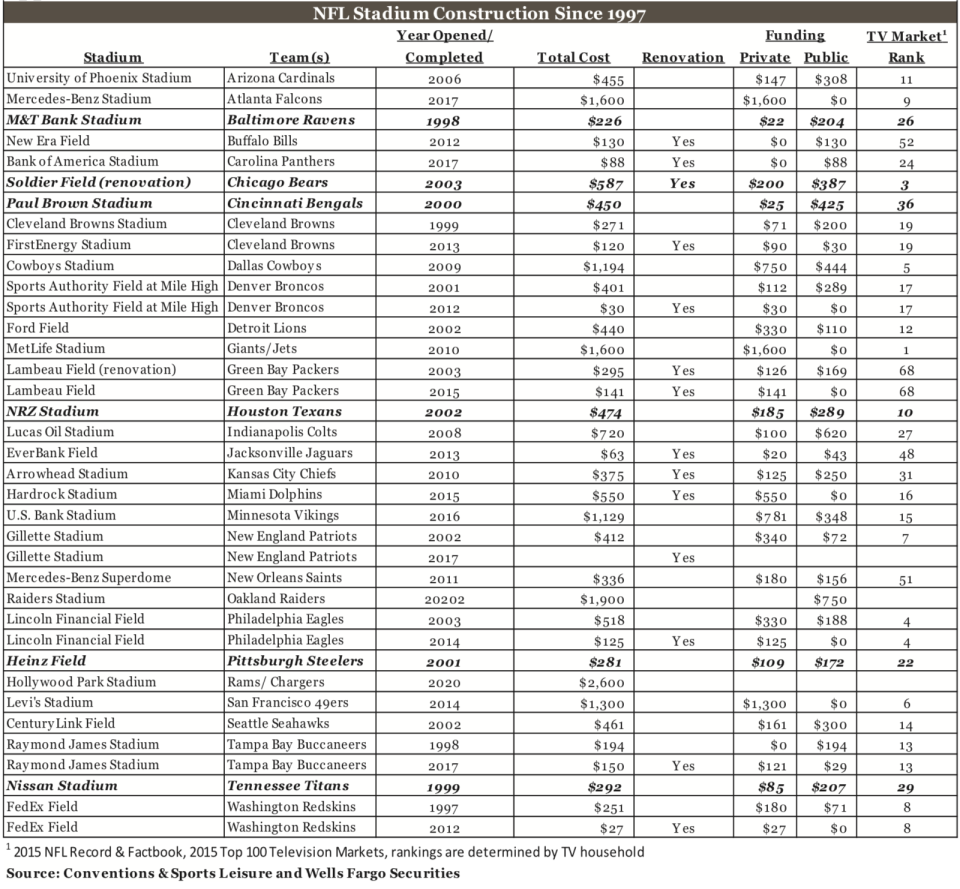Why being the host city for the Super Bowl or Amazon's HQ2 is a bad bet
Amazon’s promise of jobs and economic boom may come up short, according to analysis from the Economic Policy Institute (EPI). Luring big economic concessions from cities in order to move a headline item there is a tried-and-true formula long used by the National Football League (NFL) to entice cities to host the Super Bowl.
Economists have long scoffed at the estimates bandied about by hired-gun research firms that suggest the NFL’s big game will generate an economic windfall for cities in the hundreds of millions of dollars. (This year’s estimate for the Super Bowl’s economic impact for Minneapolis is $338 million.)
Similarly, analysts at the Economic Policy Institute (EPI) say Amazon’s claims that its new headquarters will bring $5 billion worth of prosperity and 50,000 jobs should be taken by local lawmakers with a grain of salt.
“The thing with HQ2 is it’s such an open question,” EPI economic analyst Janelle Jones, who co-authored the study, said in a phone interview. “It’s going to create jobs, but is it just displacing other workers or moving them around?”
The study asserts that while Amazon has a hefty national profile, even something as large as HQ2 “will not necessarily create more jobs overall.”

“What we’re saying to cities is ‘Let’s be sure,’” Jones said. ”Are all the things we’re sacrificing with public dollars actually going to bring some kind of noticeable and significant economic growth? Or is it just displacing other workers and shifting dollars?”
Amazon on defense
Amazon refutes much of the EPI’s findings, and in an email to Yahoo Finance, a company representative said the fulfillment centers offer “good jobs that offer competitive pay and comprehensive benefits, which include medical insurance, bonuses, 401(k) with 50% match, generous maternity and parental leave,” as well as tuition reimbursement programs.
“Our goal is to give employees the opportunity to learn new skills that can help an employee further build their careers at Amazon or even in another industry,” the company said in the emailed statement.
Amazon also argued that its fulfillment centers have created 200,000 additional non-Amazon jobs and pushed the unemployment rate in those areas down by an average of 4.8 percentage points between 2010 and 2016. (It is worth noting that from 2010 to 2016 the U.S. unemployment rate overall dropped to 4.9 % from 9.8%, a reduction of 4.9 percentage points, according to the U.S. Bureau of Labor Statistics.)
The EPI report, which analyzes the impact of Amazon’s fulfillment centers across the country, concludes that cities are largely wasting the tax incentives on an “ineffective strategy” and “unneeded giveaway” to Amazon because that money figures very minimally in corporations’ decision making; it simply turns into a windfall of profits for the company. Additionally, the report suggests that money would be better spent on public goods, such as transportation or education.
Will being home to Amazon’s new HQ pay off better than hosting the Super Bowl?
Economists who study the local economic impact of hosting the Super Bowl and the building new stadiums for NFL teams (which has come to virtually guarantee the NFL will host the Super Bowl in that city) agree that much the same is true for stadiums.
Economist Robert Baade, who has studied Super Bowls’ economic impact dating back to 1970, has concluded the economic impact of the game is likely about one-tenth of what’s projected. Rather than a $340 million economic boost, Minneapolis, this year’s host, is likely to see just $30 million to $50 million, and even that will be concentrated into certain areas, such as the hotel industry.
In spite of this, municipalities around the country continue to shell out hundreds of millions of taxpayer dollars to NFL owners for stadiums.
“In both sports and non-sports industries, what’s going on here is two-fold,” said Neil deMause, author of “Field of Schemes: How the Great Stadium Swindle Turns Public Money Into Private Profit.”
“You want good schools and transportation and a decent-sized market and all those things, but at the same time you want to extract as much cash as possible because that’s gravy on top of being where you’d want to be anyway,” deMause explained.

Further clouding the rosy outlook for cities hoping to woo Amazon is the secrecy of Amazon’s bidding process, deMause says. Because the talks are conducted privately, the company is able to pit cities against one another in a bidding war.
Cities from Atlanta to Los Angeles are offering billions of dollars in personal, corporate and job creation tax breaks for the company. One politician is even offering to let the company create its own city, of which Amazon CEO Jeff Bezos would be mayor for life.
Amazon’s fulfillment centers, EPI found, generated ostensibly no economic impact. EPI’s Jones said she expects the company’s headquarters to be a different animal, but there’s no guarantee it will even bring about enough new revenue to offset the tax losses.
That’s worth considering for any city on Amazon’s short list.
“Undoubtedly there is more to be gained by a corporate center than by sports franchise because [with a corporate center] you have something that’s actually generating revenue on its own,” deMause said. “That said, there’s almost no way it’s worth the kind of money that cities are talking about.”
—
Dion Rabouin is a markets reporter for Yahoo Finance. Follow him on Twitter: @DionRabouin.
Follow Yahoo Finance on Facebook, Twitter, Instagram, and LinkedIn.


